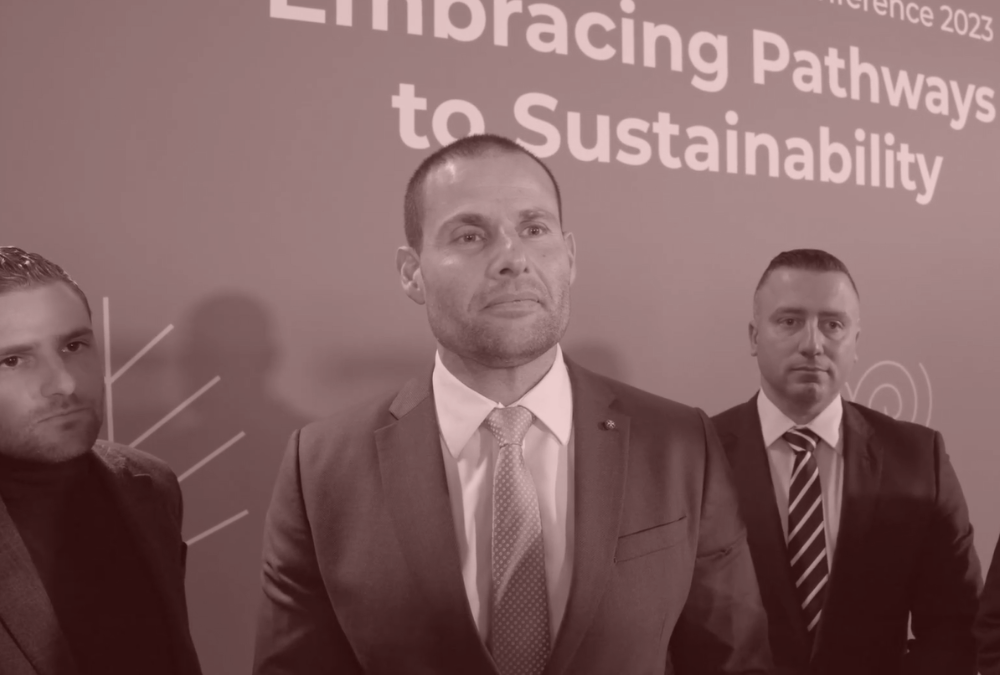Prime minister Robert Abela is at it again.
Following the latest twist in the sordid Gozo land grab saga, in which the court decided to evict a family living in Qala for committing the terrible crime of living in a home that sits on land which Gozitan developers want at all costs, Abela told reporters that the developers who are pulling off the land grab are ‘pigging out at the expense of the weak’.
Poor choice of words coming from the wealthy leader of a party which once counted among its ranks a bitter, resentful MP by the name of Rosianne Cutajar, she who will be remembered for candidly admitting to alleged murder mastermind Yorgen Fenech that she plans on joining the taxpayer money buffet, justifying it by saying that “everyone is pigging out”. The National Audit Office’s recent report confirmed what we already took for granted about Cutajar’s phantom job.
As usual, Abela was not above shoving in a jibe at the judiciary, which seems to be one of his favourite hobbies besides yachting and going to the gym. The Malta Today report I quoted above concludes with the following lines from the prime minister:
“I expect that our judiciary stays vigilant and protects the weak in this country, and does not give its protection to the capitalists abusing from their power and connections to punish the weak.”
Abela speaks so clumsily it often makes one wonder whether the lights are on in the central command nodes of his brain. Perhaps he is somehow powered by Enemalta’s electricity grid, which would explain why he’s so prone to malfunctioning.
To begin with, his habit of constantly referencing “the weak”, a number in his wannabe socialist leader soundbites catalogue which he uses frequently, is a tacit admission that Abela personally perceives himself as belonging to a class of ‘stronger’ individuals within society. Of course, a politician should be aware of their privilege. The problem with Abela’s thinking is the framing – privilege is framed as strength, rather than responsibility. Saying the government has abused that privilege is putting it undeservedly mildly.
But of course, the real message in that pearl of wisdom is Abela’s expectation that the judiciary remains vigilant and that it does all in its power to protect (again) the weak. In other words: “stop passing judgements which make me look bad and force me to deal with difficult questions from the press.”
As always, Abela conveniently ignores the fact that the sorry state of Malta’s courts is entirely the fault of his own government which is meant to ensure that the justice system has all the resources and tools to operate. Instead, his justice minister Jonathan Attard is busy stripping away prosecutors’ already limited arsenal of tools and failing to secure the desperately needed budgetary allocation that the judiciary has spent years calling out loud for.
Meanwhile, disgraced former chief of staff to the prime minister Keith Schembri is still stalling the justice system over his mobile phones’ uncanny ability to mysteriously end up in places they shouldn’t be, Jean Paul Sofia’s parents filed a case for compensation following the total statewide failures that led to their son’s death, the Degiorgio brothers registered an admission of guilt in court which formally implies high-ranking government officials in Daphne Caruana Galizia’s murder, the Attorney General reached a new level of churlishness by filing a bill of indictment against the El Hiblu 3, and a judge was forced to actively reject developers’ plans to reopen the site in which Miriam Pace was killed while proceedings remain ongoing.
If all that court drama was enough to make your head spin, bear in mind that everything I just mentioned in this whole entire column was reported over the last two days, not the last two months – even then, it would still be a lot.
Fundamentally, there is a reason why our courts are bogged down by an endless litany of cases, a reason that goes beyond a mere lack of resources. Simply explained, our justice system – not just the court, but also the law enforcement and prosecution bodies it depends on – is overwhelmed by the very fact that our country functions in an unjust manner.
A country whose rule of law has crumbled will inevitably face a situation in which its courtrooms are packed with both genuine people seeking redress for injustice and bad actors seeking to abuse the court to protect their interests and manipulate unjust laws in their favour.
The point stands. It is very disturbing to hear the prime minister speak about the judiciary’s need to remain vigilant while his Cabinet allows the judiciary to croak beneath the weight of the surging amount of organised criminality in this country. The lack of personnel, financing, and expertise that is required to adequately legislate, enforce, and arraign accordingly in the interest of the pursuit of justice is nobody’s fault but their own.


